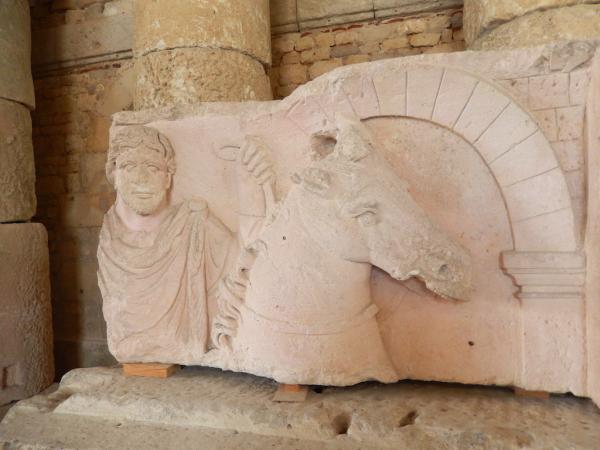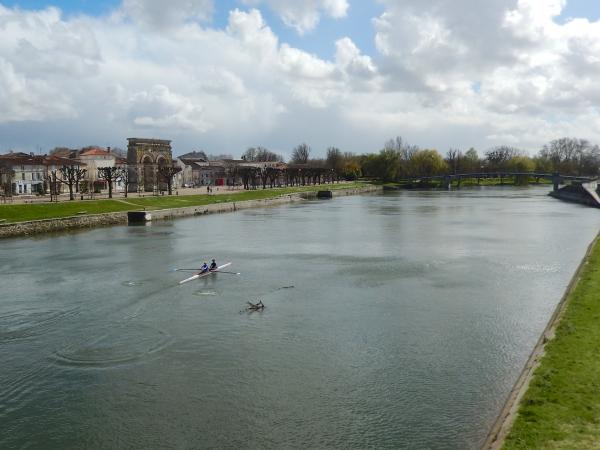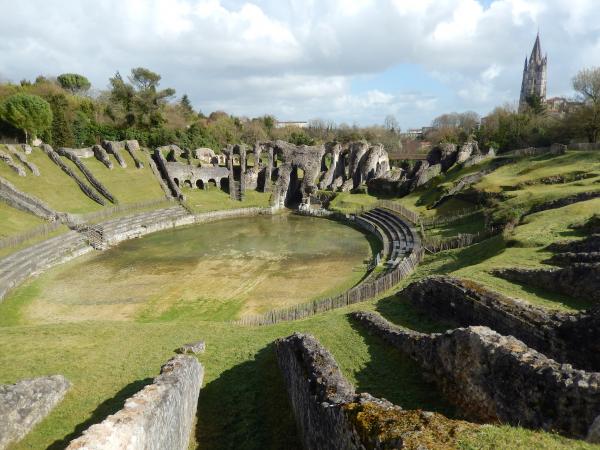Situated on the river Charente
Situated on the river Charente, Saintes is just a fifty minute drive from Villemorin. As the first Roman capital of Aquitaine, the city - birthplace of Dr. Joseph-Ignace Guillotin - still possesses many remnants of its Roman past.
Taking pride of place on the riverbank is the L’Arc of Germanicus, which was dedicated to emperor Tiberius (one of Rome's greatest generals) - his son, Drusu, and his nephew, Germanicus.
The remains of the former ampthitheatre, Les Arènas, which once held 15,000 spectators is another must see attraction, and is reached either with a brisk walk up the valley from the old town, or via car (set the satnav for 20 rue Lacurie, 17100 Saintes).
Saintes is also famous for its Romanesque architecture, including the landmark Cathédral of St-Pierre and the twelfth century Abbaye aux Dames.
Its most important monument, however, is the eleventh century Saint-Eutrope Church, dedicated to Saint Eutropius of Saintes (whose remains lie in a sarcophagus in the presbytery). Saint-Eutrope Church, which was built by Benedictine monks, is a UNESCO world heritage site, situated on the major Santiago de Compostella Pilgrim route.
The narrow, meandering streets of Saintes’ Saint Pierre district in the heart of the old town are home to a variety of restaurants, cafes and shops. Saintes’ market - open Wednesday and Saturday - offers a variety of stalls selling cheeses, meats, fish, fruit and vegetables; testament to the town’s surrounded agricultural riches. As Saintes lies at the heart of Appelation Cognac Controlee, visitors will have no problem finding local distilleries offering tasting samples.
The river Charente itself can be explored on a replica of an eighteenth century gabarre - a flat-bottomed boat that used to carry a variety of products (salt, cognac and cannons) - or on more contemporary modes of transport.
For horse lovers, Le Haras National de Saintes - one of 23 national horse studs in France - maintains a variety of local breeds, including the Poitevin draught horse and the Poitou donkey.
.jpg)


